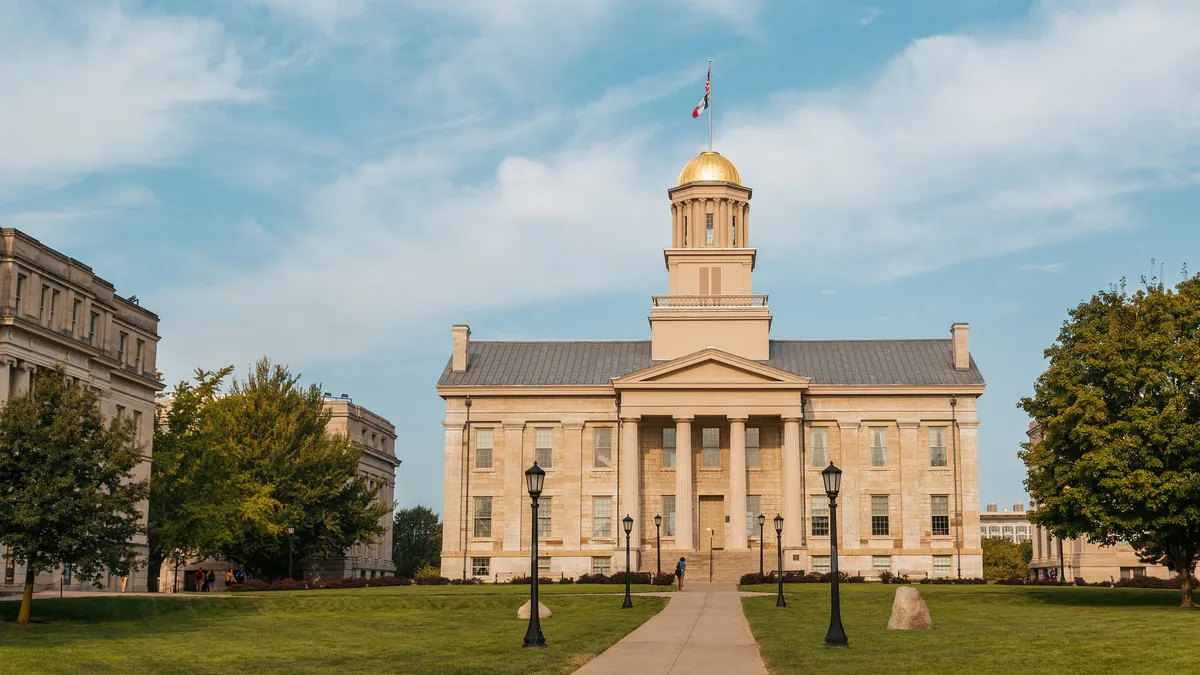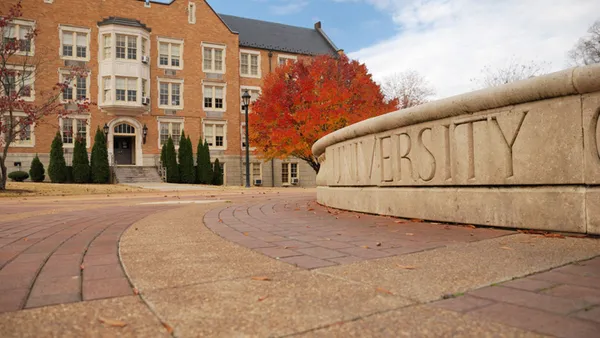Dive Brief:
- Iowa's three public universities are asking state lawmakers for $22 million in additional funding for the 2023 fiscal year, an amount they say is imperative to help them remain competitive.
- The universities' presidents said they would use the funding to further strategic goals such as hiring more mental health professionals, growing financial aid, and investing more in retaining faculty and staff.
- The request comes after lawmakers kept funding flat for the 2022 fiscal year, even though the universities said federal coronavirus relief funds did not cover their additional pandemic-related expenses. The institutions hiked tuition as a result.
Dive Insight:
While the leaders of the institutions all said during a state Board of Regents meeting Thursday that the funding would help improve their schools, Iowa State University President Wendy Wintersteen took a stronger stance, stressing that it was an "imperative" increase in the face of growing financial challenges.
"Iowa State is already one of the leanest and most efficiently run universities in the country," she said. "Without an increase in state support, we will continue to be challenged to retain our excellent faculty and staff with competitive salaries." The university also needs additional funding to update technology, clear deferred maintenance backlogs and address coronavirus costs, she added.
University of Iowa President Barbara Wilson took a different tack. She noted the university had risen in the latest U.S. News & World Report's Best Colleges rankings, which were released Monday. She suggested that additional funding could help improve the institution's student success metrics, such as retention rates, and thus help the university move up the list.
"We're not spending hours and hours trying to think about how to increase our rankings, but we are thinking about the metrics that feed into the rankings," she said.
The presidents' request for more funding to stay competitive is emblematic of the challenges public universities are facing nationwide.
Federal funding increases helped keep state support for higher education stable in fiscal 2021, according to the annual Grapevine report from Illinois State University's Center for the Study of Education Policy. But it would have declined 1.3% from the year before without that aid.
And those increases were uneven. Around two in five states saw their funding decline in fiscal 2021 -- the largest number recorded in at least six years.
Still, there are some signals pointing to a better financial outlook. In July, Fitch Ratings raised its outlook for U.S. colleges from negative to stable. The credit ratings agency made the change due to improving application numbers and a solid state budget picture.















